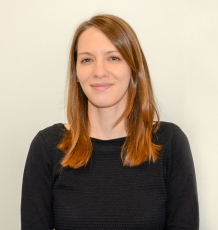Journal articles
Dennis J, Henley W, Weedon M, Lonergan M, Rodgers L, Jones A, Hamilton W, Sattar N, Janmohamed S, Holman R, et al (In Press). Sex and BMI alter the benefits and risks of sulfonylureas and thiazolidinediones in type 2 diabetes: a framework for evaluating stratification using routine clinical and individual trial data. Diabetes Care
McGovern A, Shields B, Hattersley A, Pearson E, Jones AG (In Press). What to do with diabetes therapies when HbA1c lowering is inadequate: add, switch, or continue? a MASTERMIND study. BMC Medicine
Shields BM, Angwin CD, Shepherd MH, Britten N, Jones AG, Sattar N, Holman R, Pearson ER, Hattersley AT (2022). Patient preference for second- and third-line therapies in type 2 diabetes: a prespecified secondary endpoint of the TriMaster study. Nature Medicine, 29(2), 384-391.
Shields BM, Dennis JM, Angwin CD, Warren F, Henley WE, Farmer AJ, Sattar N, Holman RR, Jones AG, Pearson ER, et al (2022). Patient stratification for determining optimal second-line and third-line therapy for type 2 diabetes: the TriMaster study. Nature Medicine, 29(2), 376-383.
McGovern AP, Hogg M, Shields BM, Sattar NA, Holman RR, Pearson ER, Hattersley AT, Jones AG, Dennis JM (2020). Risk factors for genital infections in people initiating SGLT2 inhibitors and their impact on discontinuation.
BMJ Open Diabetes Research & Care,
8(1), e001238-e001238.
Abstract.
Angwin C, Jenkinson C, Jones A, Jennison C, Henley W, Farmer A, Sattar N, Holman RR, Pearson E, Shields B, et al (2020). TriMaster: randomised double-blind crossover study of a DPP4 inhibitor, SGLT2 inhibitor and thiazolidinedione as second-line or third-line therapy in patients with type 2 diabetes who have suboptimal glycaemic control on metformin treatment with or without a sulfonylurea—a MASTERMIND study protocol.
BMJ Open,
10(12), e042784-e042784.
Abstract.
Angwin C, Pearson E, Hattersley A (2016). Crossover studies can help the individualisation of care in type 2 diabetes: the MASTERMIND approach. Practical Diabetes, 33(4), 115-117.
Conferences
Shields B, Angwin C, Jones AG, Holman RR, Sattar N, Britten N, Pearson E, Shepherd M, Hattersley AT (2022). Let the patient choose! Patient preferences for type 2 diabetes therapy in the trimaster double-blind three-way randomised crossover trial.
Author URL.
Angwin CD, Shields BM, Jones AG, Pearson ER, Hattersley AT (2022). Raised levels of brain natriuretic peptide (BNP) in patients with type 2 diabetes but no known heart failure are rare and not associated with improved response to SGLT2 inhibitors: Findings from the TriMaster study.
Author URL.
Rickards NF, Angwin C, Pearson ER, Hattersley AT (2019). Patients choose glucose lowering Type 2 diabetes therapy based on their own tolerability experience rather than glycaemia or weight considerations: Evidence from the blinded TriMaster study.
Author URL.
Grubb AL, Patel K, Oram RA, Hill AV, Angwin C, McDonald TJ, Weedon MN, Hattersley AT, Owen KR, Shields BM, et al (2018). Development and validation of a clinical prediction model to identify adult patients (aged 18-50) with type 1 diabetes requiring early insulin therapy.
Author URL.
Shakweh EY, Shields BM, Angwin CD, Rodgers LR, McDonald TJ, Pearson ER, Hattersley AT, Jones AG (2018). Precision medicine in Type 2 diabetes: is variation in response to sitagliptin and gliclazide therapy related to drug levels?.
Author URL.
Grubb AL, Patel KA, Oram RA, Hill AV, Angwin C, McDonald TJ, Weedon MN, Hattersley AT, Shields BV, Jones AG, et al (2017). Development of a risk calculator to identify patients with Type 1 diabetes who will require early insulin therapy.
Author URL.
Jones AG, Angwin C, Hammersley S, Rogers L, Shields BM, Pearson ER, Hattersley AT (2016). The DPPIV inhibitor sitagliptin lowers postprandial glucose without improving postprandial insulin secretion: a MASTERMIND study.
Author URL.
Dennis JM, Hattersley AT, Weedon M, Angwin C, Rodgers L, Pearson ER, Henley WE, Shields BM (2015). Development of oedema is associated with an improved glycaemic response in patients initiating thiazolidinediones: a MASTERMIND study.
Author URL.
Dennis JM, Hattersley AT, Weedon M, Angwin CD, Rodgers L, Pearson ER, Henley WE, Shields BM (2015). Patients who develop oedema on initiating thiazolidinedione therapy have an improved glycaemic response: a MASTERMIND study.
Author URL.
Rodgers LR, Pearson ER, Hammersley S, Angwin CD, JMcDonald T, Shields BM, Hattersley AT, Jones AG (2015). Patients with a high fasting glucose respond better to sulphonylureas than dipeptidyl peptidase IV (DPP-IV) inhibitors: a MASTERMIND study.
Author URL.
Rodgers LR, Pearson ER, Angwin CD, Hammersley S, McDonald TJ, Shields BM, Hattersley AT, Jones AG (2015). Response to glucose lowering therapy can be assessed by a brief period of treatment withdrawal: a MASTERMIND study.
Author URL.




